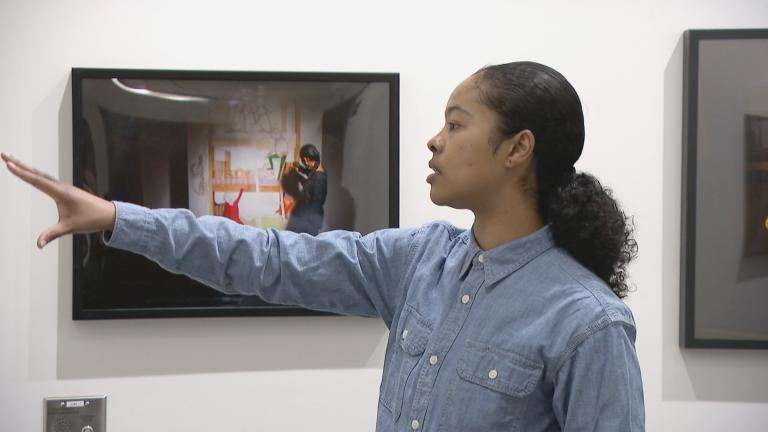What is the secret to narrowing the achievement gap that exists between kids from different socioeconomic groups? Research shows it may be all about small talk, that is: talking to the little ones as soon as they enter the world.
Research shows that children from lower-income households hear an average of 30 million fewer words by the time they're 4 years old. A University of Chicago pediatric surgeon decided it is important to have some straight talk about this word gap.
"The thirty million word gap is really a metaphor for the importance of language in the early years to build a child's brain," said Dr. Dana Suskind of the Thirty Million Words Initiative and author of the new book, Thirty Million Words: Building a Child's Brain.
Hart and Risley's study "predicted not only differences in vocabulary development but, in third grade, differences in test scores, and IQ," said Suskind. "It was really the beginning of the achievement gap that they were seeing.
"The Thirty Million Words Initiative is really about the idea that the power of parent talk – really the power of parents – is so incredible for building children's brains, and so many parents don't know the science. Our program is about translating that science and giving back the power to these parents, so that they can give their children the best chances in life."
Watch the video to hear our full conversation with Suskind.
The study
A study published in 1995 by Betty Hart and Todd Risley (read an excerpt here) first cited the "word gap" between children of different socioeconomic backgrounds as having an impact on their future development.
Over the course of two and a half years, Hart and Risley analyzed more than 1,300 transcripts after recording one full hour of conversation between a parent and child in 42 families. They found that there was a difference of 300 words spoken per hour when comparing the speech of welfare parents versus that of professional parents. This was extrapolated to show that over the course of four years, the child of a professional parent would hear roughly 45 million words, while the child of a welfare parent would hear just 15 million: a difference of 30 million words.
Their premise is simple, yet stunning: Children from economically disadvantaged families tend to hear fewer words than their more economically advantaged counterparts. This in turn impacts their future success in school and beyond.
In their own words
"The Thirty Million Words Initiative develops and disseminates evidence-based, parent-directed programs that encourage parents to harness the power of their words to build their children’s brains and shape their futures."
The guiding philosophy of the Thirty Million Words Initiative is built around the four ideas below:
- Parents are children’s first and most important teachers.
- Enriching a child’s early language environment occurs through promoting parent-child interactions that have been linked to positive child outcomes.
- Enriching a child’s early language environment does not require changing cultural practices and values or idiomatic speech.
- Parents are TMW’s most important collaborators. They have been part of the iterative process from the very beginning, creating, refining, and growing our curriculum into what it is today and what it will be tomorrow.
Below, an impact statement about the initiative from the Thirty Million Words website.





